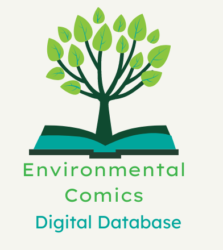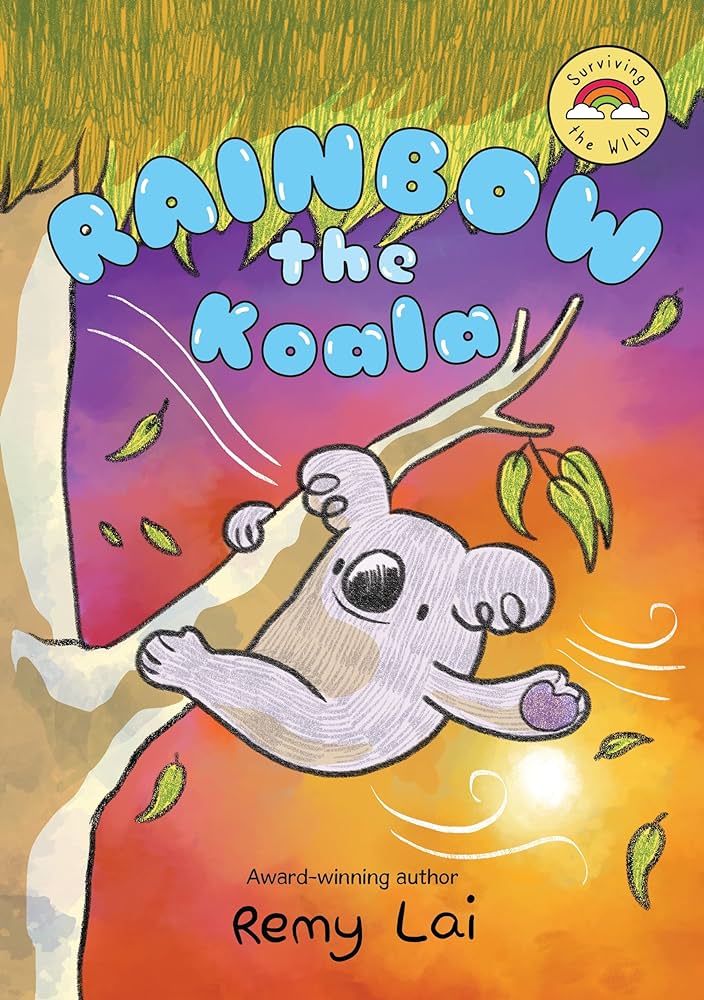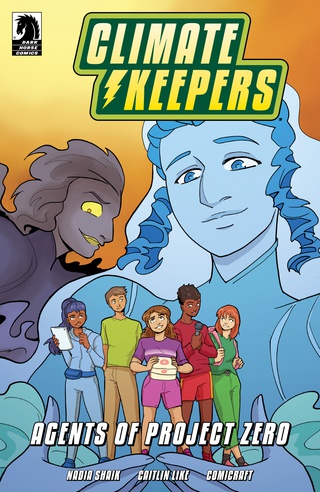“My tunnels bring air and water to the soil to help plants grow” — Worm narrator, We Dig Worms!, n. pag.
| Creator(s) | Kevin McCloskey (author) |
| Publisher | Toon Books |
| Publication Date | 2015 |
| Genre | Educational, Nonfiction |
| Environmental Themes and Issues | Educational Nature Facts, Recycling, Sustainably Produced Text |
| Protagonist’s Identity | Speaking worm narrator (Nonhuman / Animal) |
| Protagonist’s Level of Environmental Agency | Level 1: No Acknowledgement of Environmental Issues |
| Target Audience | Children |
| Settings | Unspecified park setting |
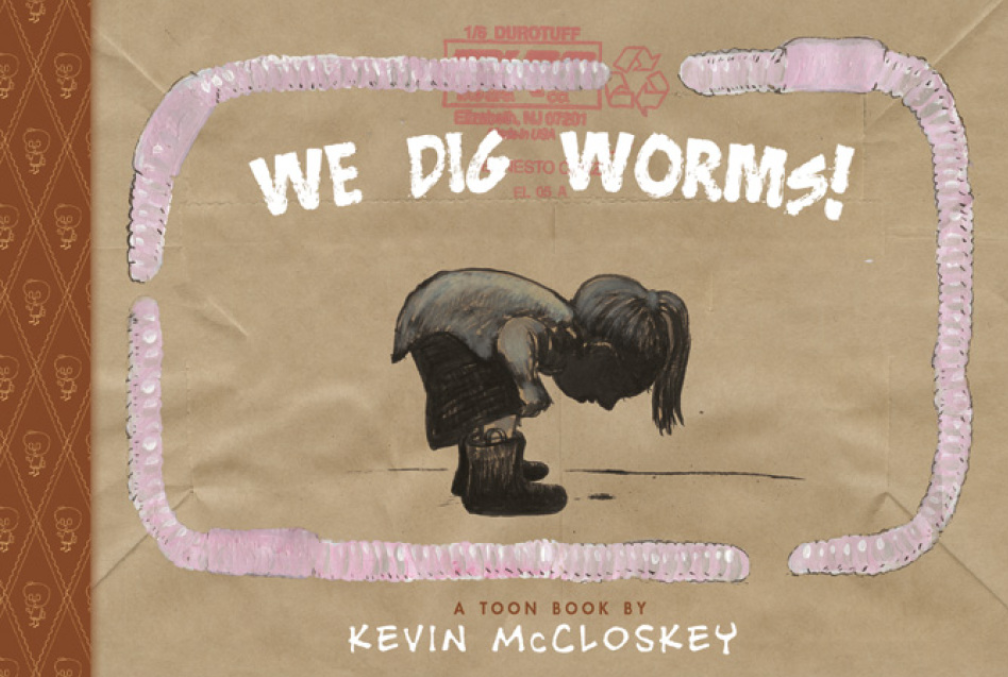
Environmental Themes
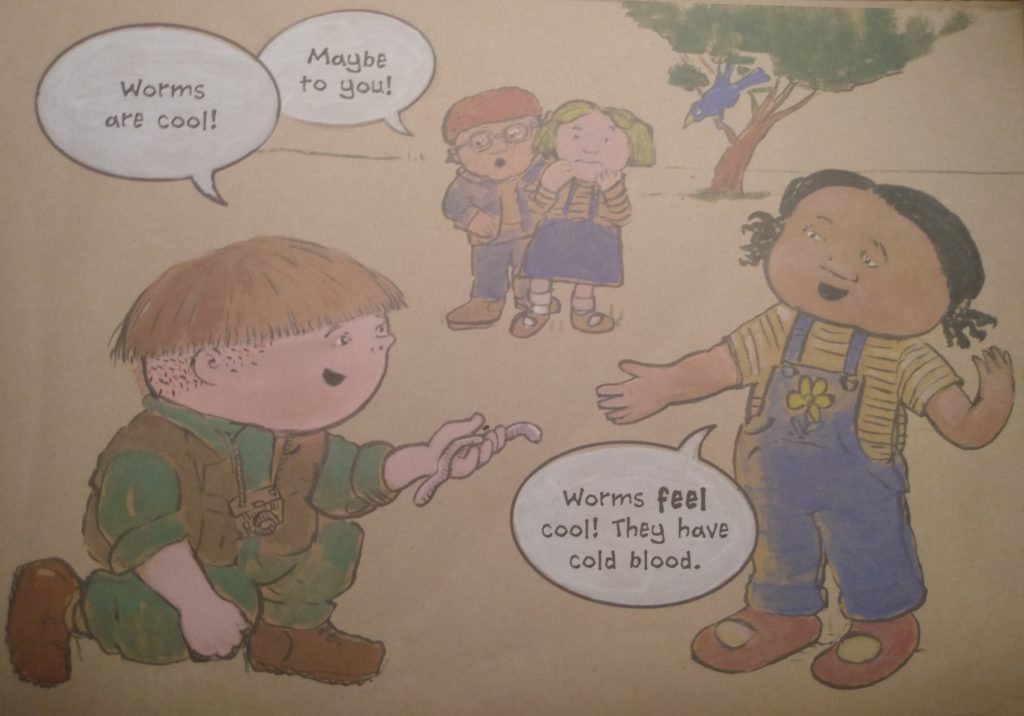
Targeted at preschool aged children, We Dig Worms! provides a humorous but informative introduction to worms. The textual narration provides facts about worms, teaching the comic’s cast of mostly-white child characters about the creatures’ anatomy, behavior, and impact on the soil, as well as describing traits of different species. A talking worm conveys additional information in speech bubbles. For instance, one page depicts a young girl bending over a hole, asking “Mister worm? Why do you come out after the rain?” On the next page, the worm responds, “It’s easier to wriggle when it’s wet!” (McCloskey n. pag.). Though the worm speaks, McCloskey does not anthropomorphize the creatures, depicting them instead engaging in natural behaviors. By emphasizing the ways that worms benefit the environment, the comic encourages children to learn about and marvel at the creatures. However, a few of the child characters do express disgust at the worms, perhaps diminishing the comic’s favorable portrayal of the creatures. For instance, one girl exclaims “Eew!” after learning about worm poop (McCloskey).
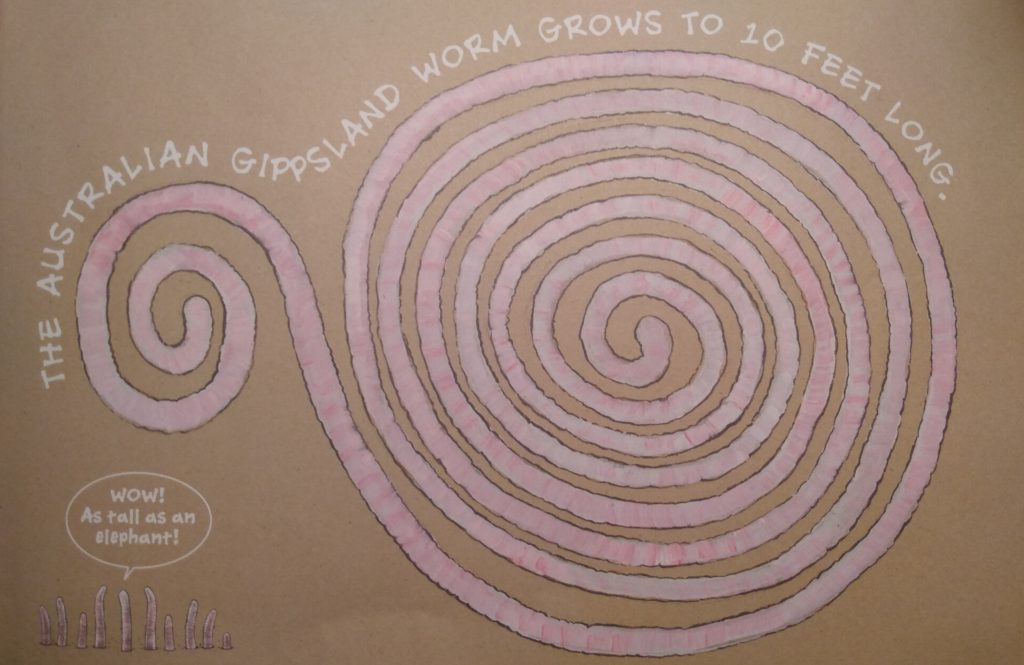
Other environmental comics created by Kevin McCloskey include The Real Poop on Pigeons! and Ants Don’t Wear Pants!
Paratexts
The copyright page notes that the comic was produced using sustainable publishing practices: “All our books are… printed with soy-based inks on acid-free, woodfree paper harvested from responsible sources” (McCloskey). Additionally, an “About the Author” page in the comic’s backmatter states that the creator “painted these worm pictures on recycled grocery bags because, just like worms, he believes in recycling.”
